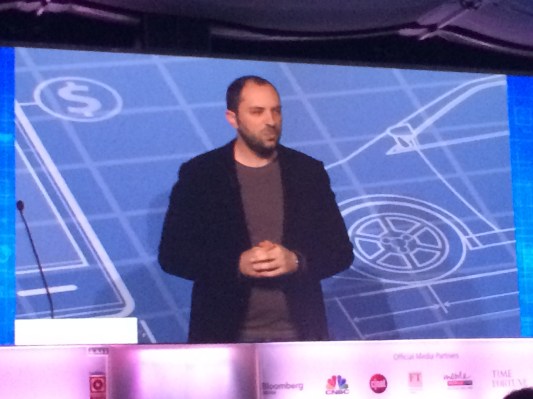Today Jan Koum, the CEO of WhatsApp — acquired by Facebook last week for $19 billion — delivered another news bomb on top of last week’s milestone: he announced that the messaging giant is finally moving into voice — a move announced at MWC, the conference for mobile carriers that apps like WhatsApp are disrupting.
The move will put WhatsApp — and by default Facebook — more squarely in competition against the likes of KakaoTalk, Line, BBM and other messaging apps that also offer voice services. Today, the co-CEO of KakaoTalk, Sirgoo Lee, noted that in countries like Korea his regional giant is wiping the floor with Facebook: The company has 130 million users in total, with 55 million of them using the more multimedia KakaoStory, he noted, and Kakao surpasses Facebook as the default mobile SMS platform in Korea. But as Koum noted today, it wants to grow its users everywhere and use voice to do that, “including in Korea.”
“We use the least amount of bandwidth and we use the hell out of it,” he said. “We will focus on simplicity.” Voice will come to Android and iOS first and then following on some Nokia and BlackBerry phones, he added.
Koum today said that WhatsApp to date has 465 million monthly active users and 330 million daily users — an increase of 15 million on the number released just last week when news of the Facebook sale broke. “We couldn’t be more humbled by our growth,” he said. Interestingly, today is the company’s birthday. It was founded on February 24, 2009.
While WhatsApp, as an OTT service, may appear like one of the companies that is attacking carriers, it is also working with them. Typical of that is a relationship with German carrier E-plus to offer special tariffs to access the app, Koum said today. (WhatsApp has partnerships with some 50 carriers, the company tells me.) Interestingly, disrupting the current mobile communications economy has put WhatsApp right back into the kinds of services that built out that economy in the first place — in today’s case, voice.
But he also reiterated a key point for how WhatsApp will develop strategically: “There are no planned changes and we will continue to do what we set out to do, even after the acquisition closes,” Koum said. “Still no marketing.”
So what is Facebook getting? Anytime you can get a billion people on one platform, you have something important, Koum said. In other words, he dodged the question.

